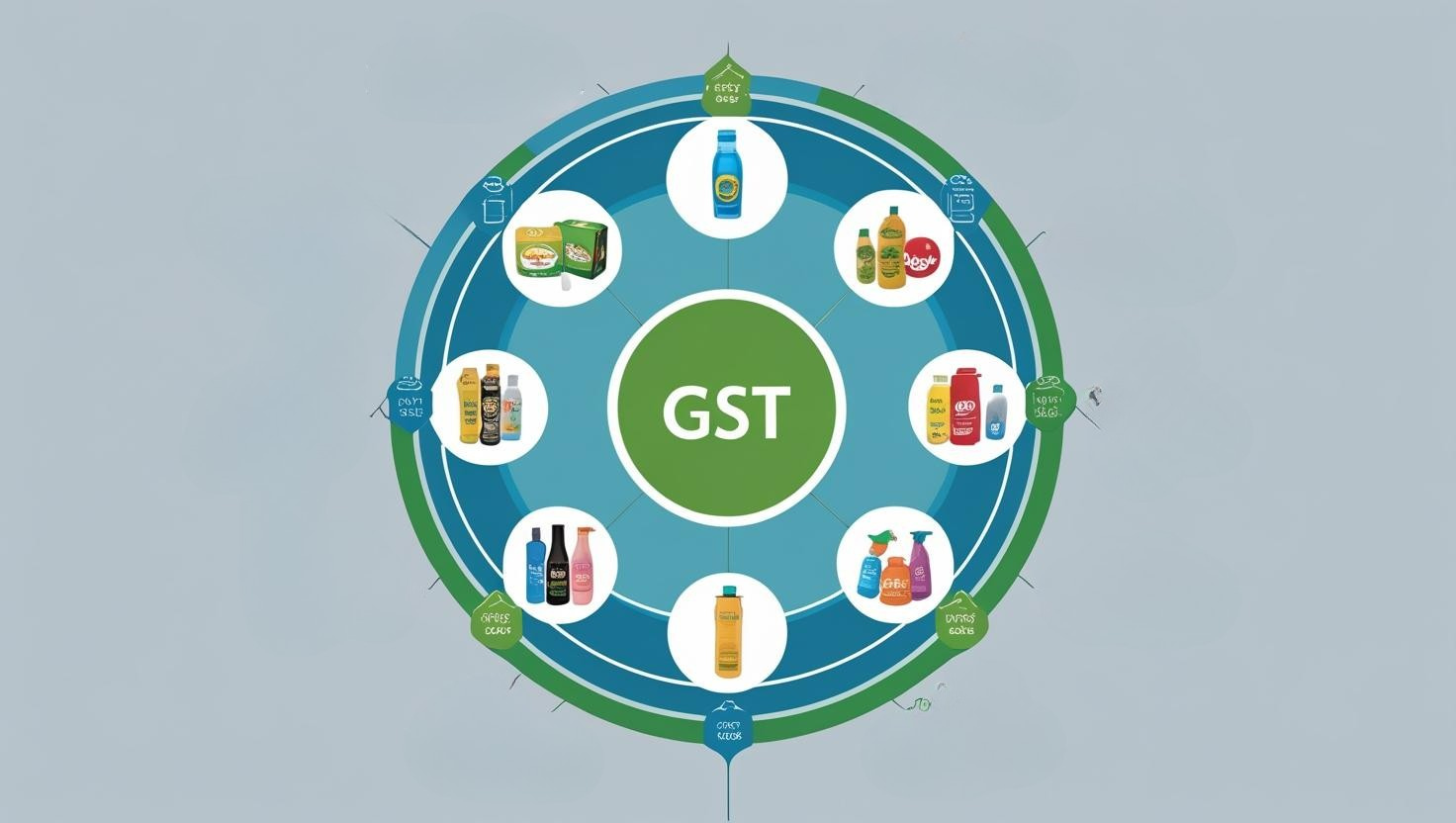GST Slab | FMCG Items |
0% (Nil Rate) | Basic food items such as milk, rice, wheat, and fresh vegetables. |
| 5% | Packaged food items like paneer and frozen vegetables. |
| 12% | Butter, cheese, ghee, and dry fruits (expected to become costlier). |
| 18% | Processed foods, soaps, detergents, and shampoos. |
| 28% | Luxury goods such as cosmetics and aerated drinks. |
It is crucial for FMCG companies to accurately classify their products under the appropriate HSN codes to ensure compliance with GST rates. The correct assignment of HSN codes facilitates smooth GST return filing and enables efficient domestic and international trade.

The Positive Impact of GST on the FMCG Industry
1. Reduction in cascading taxes
By replacing multiple indirect taxes with a single unified tax, GST has removed the compounding tax effect, lowering the overall tax burden and improving price transparency.
2. Simplified compliance
A centralised tax system and elimination of state-level levies have eased regulatory processes, enabling smoother operations and interstate expansion for FMCG businesses.
3. Improved supply chain efficiency
Saugata Gupta, MD & CEO of Marico Ltd., affirms, “GST has helped in supply chain effectiveness and improved the ease of doing business.” Removal of inter-state tax barriers has allowed firms to consolidate warehouses and optimise logistics, reducing transit times and overall distribution costs.
4. Input Tax Credit
GST allows businesses to claim credit on input taxes, enhancing profit margins and making end products more affordable for consumers.
FAQs
Q1. How has GST impacted FMCG pricing?
GST has had a mixed impact on FMCG pricing. While some essential products have become cheaper due to lower GST rates, others have become costlier. FMCG companies have adjusted their pricing strategies to align with the GST structure and remain competitive in the market.
Q2. What challenges do FMCG businesses face under GST?
FMCG businesses have faced challenges such as transition costs, complex compliance requirements, and working capital strain due to deferred input tax credit claims. However, these challenges are expected to subside as businesses adapt to the GST regime and leverage digital solutions for compliance and supply chain management.
Q3. Can FMCG businesses claim Input Tax Credit (ITC) on all products?
Under GST, FMCG businesses can claim ITC on most of their inputs used in the manufacturing or distribution of taxable products. However, there are certain restrictions on claiming ITC for goods and services that are used for non-business purposes or for exempt supplies.
